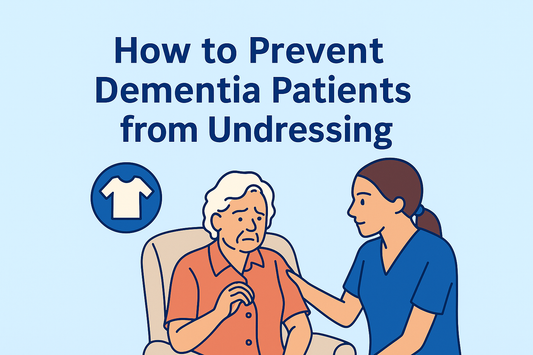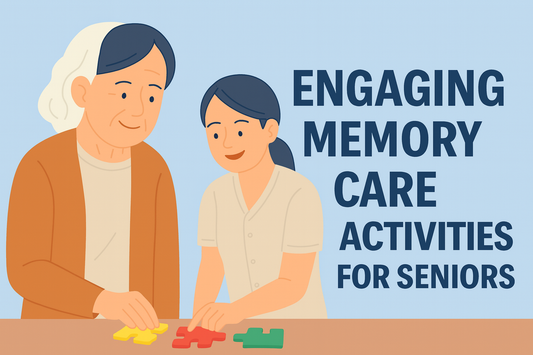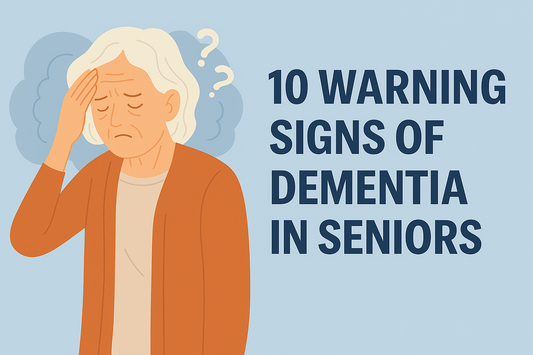
10 Ways to Manage Hallucinations in Dementia Patients
While aggressive behavior and anger are not commonly known symptoms of Alzheimer’s disease, a small proportion of dementia patients do present some type of aggressive behavior. According to a German study, it occurs in about 29% of dementia patients. This behavior may occur during a number of situations and there may be a variety of reasons for it as well.
QUICK LINKS - TOPICS COVERED:
- WHY DEMENTIA PATIENTS CAN GET AGGRESSIVE
- 10 TIPS FOR MANAGING AGGRESSION
- #1. Observe When It Occurs
- #2. Understand What Triggers the Aggressive Behavior
- #3. Is There A Pattern?
- #4. Be Aware of Your Loved One’s Well-Being
- #5. Learn To Communicate
- #6: Do Not Contradict Your Loved One
- #7: Introduce Positive Stimuli
- #8: Introduce a Hobby
- #9: Change the Subject
- #10: Be Patient and Forgiving
- USING MEDICATION TO MANAGE AGGRESSION
WHY DEMENTIA PATIENTS CAN GET AGGRESSIVE
Sometimes, it could be due to suspicion or discomfort while other times it could be due frustration. The triggers could be anything from not being able to recognize a family member, loved one, close friend, or caregiver to not having any other way of expressing themselves. An important thing to consider is that although to the regular person, this may be troublesome for the families and caregivers, we need to understand that for a dementia patient, it may be a very serious matter and only way to deal with their discomfort.
As such, often non-trained caregivers and family members may be at a loss on how to manage a dementia patient’s aggression. Here are 10 ways that can help when dealing with a dementia-suffering loved one’s aggressive behavior:
10 TIPS FOR MANAGING AGGRESSION
#1. Observe When It Occurs
Sometimes your loved one may have an outburst of anger and become aggressive for no apparent reason. To the regular person, the reason may not be obvious. Therefore, it is very important to pay close attention to the events that happen before the episode. Try to recall the following information:
- Was it before bedtime?
- Was it before bath time?
- Was it before eating?
- Was it during TV time?
Answering objectively to these questions may help you understand the reason the behavior was triggered in the first place. This way, you will be able to work out what changes need to be made.
#2: Understand What Triggers the Aggressive Behavior
As mentioned, often your loved one’s anger may seem pointless to the average person. But for the dementia patient, there may be more significance. It is important to understand what triggers your loved one to become upset. It is best to be objective when doing this as it is not a reflection of anyone’s caregiving ability. Remember, most of these types of aggressive behavior are often due to confusion, frustration, or suspicion. Below are some simple questions to get you started in understanding the trigger:
- Was there anything done differently in your loved one’s daily routine?
- Was any of your loved one’s possession moved from its place?
- Is your loved one meeting unfamiliar or new people?
- Was there any difference in your communication with your loved from the usual?
Sometimes the trigger could be a minor thing such as a change in routine or a different scent. To the dementia patient, this is a big deal as they are people of habit. Moreover, as they gradually lose their ability to communicate, their anger and aggression may their only channel left. Other times, they simply may not recognize you or the caregiver and naturally react with aggression as a way to protect themselves. Although it is a complex situation, it is imperative for you to try to find out what led to the situation in the first place.
#3: Is There A Pattern?
Many times, your loved one’s anger and aggressive behavior may follow a set pattern or situation or circumstance. Episodes may occur during specific times of the day, during specific activities such as medication times or meal times, or even when they are moved from one place to another. Should you feel that there is a pattern to your loved one’s aggression, try to discern the following:
- When did the episodes start?
- Does it happen every time or is occasional?
- Was something done differently during the occasions?
- Where there any changes before and after the pattern started?
- Is there a way to avoid or change the trigger back to the previous state?
#4: Be Aware of Your Loved One’s Well-Being
There is a very high chance that your loved one’s aggression and anger is due to them being uncomfortable. If you suspect that this might be the cause, then try to look for the following signs:
- Are they showing any signs of being physically uncomfortable?
- Could they be cold, thirsty, hungry, etc.?
- Is there a need for them to be cleaned up?
- Are there signs of them being in physical pain?
Since your loved one will eventually lose their ability to verbally communicate, they are going to resort to other forms, including gestures, shouts, anger, and others. As a caregiver, it is important for you to be observant of your loved one’s well-being and identify if they show any signs of distress or discomfort.
#5: Learn To Communicate
There will come a time when your loved one will no longer be able to understand what you say to them. But given the human nature, even a dementia patient will be able to read and interpret facial expressions, tone of speech, and body language. Therefore it is important to be aware of the way you communicate with them. You not only have to be aware of not only what you are saying to them, but also how you are conveying it to them. Here are some ways to ensure smooth communication with your loved one:
- Tone – be calm and talk to your loved one calmly as possible. Your calmness in turn can keep them calm and indicate to them that everything is okay.
- Smile and use eye contact – smiling at your loved one will instinctively calm them and build their trust with you.
- Show comfort – sometimes a comforting touch can do the trick to calm your loved one.
#6: Do Not Contradict Your Loved One
Sometimes your loved one will exhibit aggressive behavior due to frustration. The reason for their frustration could be many. They may want to do something but can’t. It could be due to a variety of reasons such as they are not able to do it or they can’t be allowed to do it anymore for fear for their safety.
The key to calming down your loved one in a situation like this is to show acceptance instead of refusal. Do not contradict them. Try to show them that you are there to help. Be part of the solution and try to insert your loved one in the solution. Try to convince them to do the thing they want to do later or provide alternatives and offer your company for it.
#7: Introduce Positive Stimuli
Sometimes, during times of crisis, introducing a positive stimuli your loved one may recognize may be adequate. This could be something like a photo, a song, or even a familiar object. Show or do activities with them of things that your loved one used to like before their dementia diagnosis that they associated with calmness and serenity. Try going through old photos and go through them with your loved one. Talk about them and bring about good memories.
#8: Introduce a Hobby
Your loved one may have enjoyed doing certain activities prior to their dementia diagnosis. If they can still be done safely, then there should be no problem in them continuing their hobby. Having something pleasant for them to do can not only keep their time occupied, but also relax their mind.
If old hobbies are no longer safe for your loved one, there are plenty of other options to introduce a new one. You can search online for ideas on activities and hobbies that are safe for dementia patients to pursue. Some of these can be done in the comfort of their home while others, if the patient can be taken outside of the home, may be available at local adult day care centers and other organizations catered to dementia patients.
#9: Change the Subject
Sometimes the best approach to calm your loved one down in a stressful and aggressive situation is to change the subject. Since their anger and aggression can often be triggered by confusion and suspicion, diverting their mind from the trigger can help tremendously. Show them something familiar or calming. Try to take their mind of the subject causing them discomfort. The more subject gets, the more frustrated your loved one may become.
#10: Be Patient and Forgiving
It is important to remember that your loved one’s aggression and is due to their illness and not their personality or your fault. While it can be stressful and frustration for the caregiver themselves, you should always remain calm and patient in front of your loved one. If they say or do something hurtful, ignore it because it is possible that they don’t know who they are talking to or what they are saying. Instead, try to divert the attention to something less stress inducing. Do not judge them or treat them badly in any situation. Remember, it is not their fault, it is the illness.
USING MEDICATION TO MANAGE AGGRESSION
While the tips and advice above can help tremendously in dealing with a dementia patient’s anger and aggression, they do have their limits. If you feel that the situations are starting to escalate to a point where your safety or your loved one’s safety is at stake, then you should contact your loved one’s doctor.



